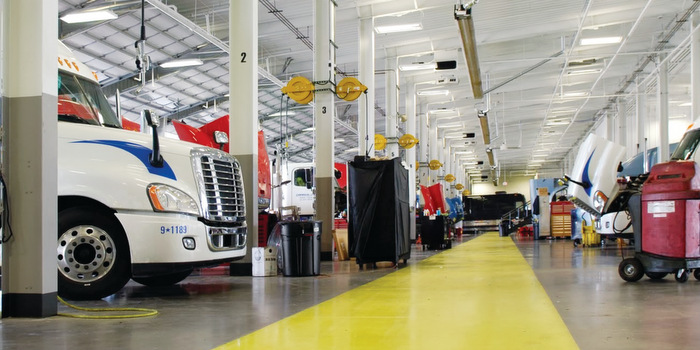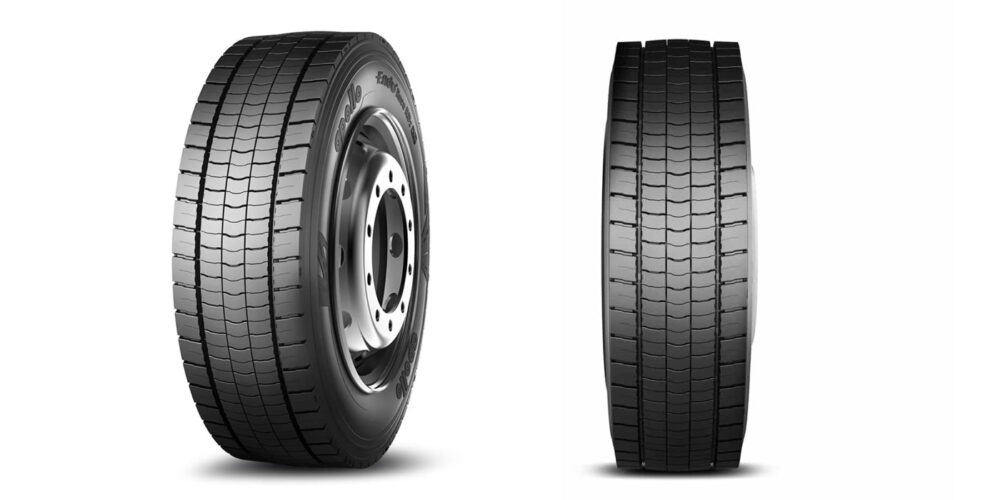Across North America, it’s getting to be that time of year when temperatures regularly begin to dip below freezing—and when commercial vehicle pneumatic systems need a little extra attention. With more vehicle systems incorporating the use of compressed air for non-braking functions—including automated manual transmissions (AMTs), emissions controls and advanced safety technologies—Bendix Commercial Vehicle Systems LLC offers the following three keys to air system maintenance during the winter months:
1. Worry about the water
“It’s really not the cold itself that brings the most potential for air system trouble—it’s the moisture that’s brought in with it when the compressor draws in air,” said Richard Nagel, Bendix director of marketing and customer solutions, charging group. “If enough moisture makes its way through the air dryer, it creates the potential for condensation within the air tanks—and from there, it can travel downstream, affecting the braking system and other connected technologies.”
If that happens, low temperatures can definitely have a negative impact, freezing the condensed water and increasing the likelihood of component malfunctions in the valves, controls, and solenoids utilized in advanced safety technologies, emissions controls, and automated manual transmissions.
Manually draining the air tanks is a simple and fail-safe step that can help keep the air system moisture-free in winter. Bendix recommends draining the tanks at least every three months for a typical line haul truck, and as frequently as once a month for vehicles with high air demand.
2. Maintain and properly equip your dryer
To prevent moisture freezing in the system, a properly functioning air dryer becomes even more important in cold weather. Unfortunately, winter brings with it several factors that can have a negative impact on a dryer’s capacity for effectively removing moisture from air entering the system. The general stress of freeze-and-thaw cycles creates added strain on components, for instance, and trapped water can prevent dryer valves from functioning correctly. Additionally, road chemicals used in de-icing can corrode a dryer’s purge valve.
Bendix recommends replacing the dryer’s purge valve using a high-quality, original equipment (OE) component when you replace the air dryer cartridge, as part of regular preventive maintenance and preparation for winter.
It also makes sense to schedule annual air dryer cartridge replacement in the fall, before the temperatures drop. The right cartridge can be one of the easiest and most cost-effective means of preventing moisture from getting into your air system.
While today’s common spin-on cartridges offer easier maintenance compared with older proprietary-style cartridges, they can contain less moisture-removing material (desiccant) than some proprietary designs – which means it’s even more important to prepare for adequate winter protection by installing a new cartridge.
Widespread adoption of spin-on cartridges has led to a growing supply of aftermarket alternative products, but Bendix recommends sticking with OE cartridges to ensure the use of effective, high-quality desiccant. Winter is not the time to compromise the dryer’s ability to provide protection against moisture. Bendix also advises the use of oil-coalescing cartridges, since oil aerosols can also be particularly harmful to air systems.
3. How to deal with system freezes
A high-quality air dryer/cartridge pairing, along with proper preventive maintenance, can be very effective in avoiding freeze-ups. Sometimes, though, winter weather wins—at least for a bit—and part of a vehicle’s air system will freeze.
Typically, fleets and drivers have turned to alcohol or similar de-icing solutions for a quick fix, adding it to the system until the affected area clears. Bendix, however, emphatically advises against this: The term “alcohol” covers a wide variety of chemicals, and many of these can cause leaks or valve malfunctions by corroding the compounds used in brake system seals, or breaking down internal valve lubricants. Even methanol—a commonly used alcohol in de-icing solutions – can cause long-term damage.
“Of course, we recognize that there are situations, such as a truck being down, that may call for drastic measures, including the use of a brake anti-freeze compound,” Nagel said. “In those instances, it’s important to try to determine the precise location of the freeze-up, and limit application to that area, minimizing potential exposure to other parts of the air system.”
Make note of the location of the alcohol addition: It will determine what downstream components might be affected. Later, when possible, check for leaks around the brake valves if the O-rings were exposed to the anti-freeze chemical. Leaks can be audible, or they can be detected by using soap spray. If necessary, replace the O-ring in a leaking valve with a new one, or replace the entire valve with a new or remanufactured component.
This article was contributed by Bendix Commercial Vehicle Systems as part of the Bendix Tech Tips series. For more from Bendix, visit its new multimedia center.














